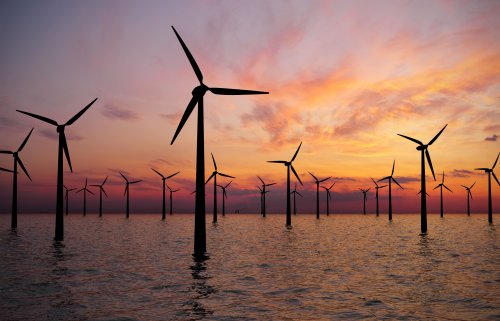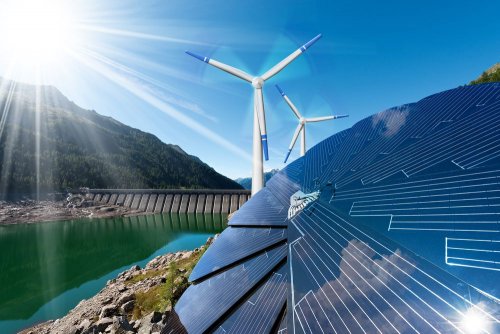Analysts from The Economist have studied the pace of development and the main trends in the solar energy industry and concluded that it will take a leading place among other types of energy in providing the world's population with energy in the coming decades.
They posted the materials of their own research on The Economist's website.
Exponential growth
Experts at The Economist argue that calling the growth of solar energy exponential is not an exaggeration, but a statement of fact. They say that installed solar capacity doubles approximately every 3 years, which means it grows 10 times every decade. The next 10-fold increase would be equivalent to increasing the world's entire fleet of nuclear reactors by 8 times in less time than it would normally take to build just one of them.
Analysts predict that solar panels will become the largest source of electricity on the planet by the mid-2030s. By the 2040s, they could become the largest source of not just electricity, but all energy.
On current trends, the total cost of the electricity they produce promises to be almost half the price of the cheapest available today.
Experts also warn that the rapid development of solar energy will not stop climate change, but may significantly slow it down.
“Much of the world, including Africa, where 600 million people still cannot light their homes, will begin to feel energy rich. This feeling will be new and transformational for humanity,” analysts predict.
Factors that make solar energy attractive
Solar energy does not face the same constraints as, for example, oil or gas production, where as production efficiency increases, the cost must decrease, but it is ultimately offset by the cost of finding even more fuel.
Experts say the resources needed to produce solar cells and install them on solar farms are sand rich in silicon, sunny locations and human ingenuity, of which humanity has plenty. Producing elements also requires energy, but solar energy quickly makes it abundant.
“As for demand, it is huge and elastic – if you make electricity cheaper, people will find a use for it. As a result, unlike previous energy sources, solar energy is constantly becoming cheaper and will continue to become cheaper,” analysts are confident.
Limiting Factors
Experts warn that the main generation of solar panels occurs during the day, and peak hours of electricity consumption occur in the evening, so solar energy must be supplemented with parallel development of storage technologies.
There are also challenges to electrifying heavy industry, aviation and freight transport. Fortunately, these problems can be solved as batteries and fuels using electrolysis are gradually becoming cheaper.
Bright future
This is the transformation picture The Economist analysts paint in the near future:
"Everything that people use energy for today will cost less – and that includes almost everything. Then there will be things that will be possible with cheap energy. People who could never afford it will start lighting their houses or driving their cars. Cheap energy can purify water and even desalinate it. It can drive hungry artificial intelligence machines. But the biggest consequences will be those that no one has yet thought about. In its radical abundance, cheaper energy will free the imagination, making the tiny wheels of the mind turn. from excitement and new possibilities.”
The other day, EcoPolitic reported that German company Goldbeck Solar will build 500 MW of solar energy in Ukraine.
Potentially, Ukraine could become the world's first post-war country built on renewable energy sources.





